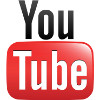 The Reality Check celebrates its 500th episode in style! First the crew looks back on segment topics that sounded fishy but actually turned out to be true. Next, Pat tests the gang’s ability to ‘spot the fake’ in another addition of everybody’s favourite mostly guessing game. Lastly, we reflect on 500 episodes.
The Reality Check celebrates its 500th episode in style! First the crew looks back on segment topics that sounded fishy but actually turned out to be true. Next, Pat tests the gang’s ability to ‘spot the fake’ in another addition of everybody’s favourite mostly guessing game. Lastly, we reflect on 500 episodes.
Download direct: mp3 file
Name That: Spot The Fake
Man Spends Almost Five Months In Prison – $2 Bail
Reading Privacy Policies Would Take You 76 Work Days
Fake Facts You’re Doomed To Remember As True
Taxpayers Lost $105M on Pennies And Nickels
Man Trips Over Beard, Dies In Fire
Terrifying Katzenklavier Organ Made Of Cats
A Group Of Flamingos Is A Flamboyance








(I think this was the episode about legalisms surrounding photographing the Eiffel Tower).
And now my query: In Cristina’s generally excellent segment, she seems to go back and forth rather loosely between the concepts of “taking a photo” and “taking and distributing a photo” (or videos.) My guess is that the French copyright provision is strictly about unauthorized DISTRIBUTION of the Tower light display, not the act of simply photographing it. It seems to me that a publicly available scene, like any person—celebrity or otherwise—out on the town, is fair game for being photographed. My experience at various art shows and museums is that artists or organizers may prohibit photographing their exhibit pieces due to the possibility of illicit reproduction and distribution of their copyrighted work. But these works are always displayed in the context of a tent, booth or museum setting, usually with appropriate advisories about photographing them. (As a side note, I was, shall we say “detained” in Saudi Arabia once for photographing a government building. Saudi does have pretty strict rules about such things though many expats are misinformed about the legality of public photography, which is quite legal…just don’t try to photograph certain Ministry buildings).
Since the Eiffel Tower is visually accessible for kilometers around, including the sky, the idea of the French having some sort of legal restriction on photographing it (albeit not enforced) does not seem credible. I suspect anyone could legally shoot the photo, take it home and perhaps show it to friends privately without any copyright violation. Presumably, the copyright holder is not losing any revenue or other benefit other from such a private viewing, other than that the viewing friends might say “OK, we don’t need to go to France now since we’ve seen this!” It does make sense, I suppose, to protect the publication or distribution of a copyrighted art installation.
So my question for Cristina boils down to: Did you really mean that the French law prohibits the taking of such a photograph, or really, the taking and distribution or publication?
Sincerely,
Long time listener
Jim Veihdeffer (VEE-deffer)
Hey Jim! It’s a little murky because as you mention, if you take a photo privately and don’t post it anywhere, you’re not breaking any copyright violations so who cares? But from what I researched it is true that “technically”, taking pictures of the iconic Eiffel Tower at night without explicit permission is illegal, and punishable by a massive fine, even though it’s virtually impossible to enforce. And then as I mention, if you want to publish the image to social media you must gain permission from the ‘Société d’Exploitation de la Tour Eiffel’ (the Eiffel Tower’s operating company). – C.
https://metro.co.uk/2016/09/09/you-cant-take-pictures-of-the-eiffel-tower-at-night-6118230/
http://www.dailymail.co.uk/travel/travel_news/article-2831331/Tourists-warned-breaking-law-taking-photos-Eiffel-Tower-night-sharing-images-Facebook-ILLEGAL.html